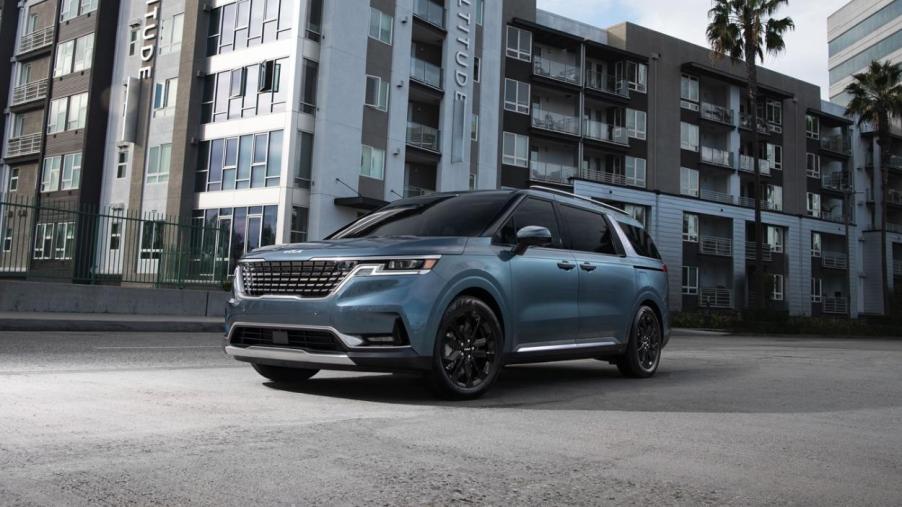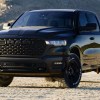
Will the Success of the Kia Carnival Inspire a New Hyundai Model?
The Kia Carnival is the South Korean automaker’s entrant into the highly competitive minivan market, replacing the Sedona beginning in the 2022 model year. The Carnival has established itself among its rivals, namely the Honda Odyssey, Chrysler Pacifica, and Toyota Sienna, but if history is any indication, it could eventually have another rival from its corporate cousin, Hyundai.
Hyundai and Kia’s partnership has resulted in both companies offering similar products, and as such, the introduction of a Hyundai minivan is certainly a possibility.
The Kia Carnival looks like a winner
The Carnival might be the newest nameplate in the minivan fray, but it’s already caught on well with buyers needing to move their brood. According to GoodCarBadCar, Kia sold over 33,000 models through September of this year, more than double the sales of the first nine months of 2022.
The Carnival’s sales figures still significantly trail that of its rivals. Over 53,000 Odyssey models, 47,000 Siennas, and 112,000 Pacificas were sold during the same time. However, the Carnival has been rising in popularity among buyers since its introduction. Kia notes this year marks the best sales September ever for the model, and annual sales are up 187 percent over this time last year.
The Carnival is also proving itself to be a worthy contender in the highly competitive minivan fray. Showing the closeness of the competition, Car and Driver ranks it second behind the Sienna, U.S. News & World Report ranks it third behind the Odyssey and Pacifica Hybrid, and Edmunds puts the Kia fourth.
While these rankings show the Carnival isn’t an undisputed king of its class, like the Telluride among midsize three-row SUVs, it showcases Kia’s minivan is certainly a strong contender in its class. And that further underscores the possibility a Hyundai minivan is within the realm of reason.
Most Kia models have a Hyundai equivalent
Hyundai and Kia’s partnership has resulted in the two companies sharing platforms for similar models. For instance, the Kia Telluride and Hyundai Palisade share the same powertrain, are near mirror images of one another in size, and share plenty of the same features and amenities. And at least at the base level, they are priced within just a few hundred dollars of one another.
It’s a similar story for the Kia Sportage and Hyundai Tucson in the compact SUV segment.
Similarly, the K5 and Sonata sedans ride on the same platform, and the Seltos and Kona share a duo of engines.
This platform sharing model now extends to the automakers’ EVs. The Hyundai Ioniq 5 and Kia EV6 are near carbon copies of one another under their radically different bodywork.
Will Hyundai follow the Carnival’s lead?
Given the sharing across the proverbial aisle between Hyundai and Kia, the introduction of a Hyundai minivan isn’t a farfetched notion. Hyundai could feasibly use the Carnival’s platform and V6-powered drivetrain to serve as a foundation and build up its own minivan around them.
From a consumer’s perspective, this could be a boon as Hyundai is generally a value leader among mainstream automakers, providing ample standard features and the automaker’s industry-leading warranties. Additionally, more competition almost always benefits buyers.
A Hyundai minivan could also help Hyundai/Kia further eat into the market share of the “big three” minivans, the Odyssey, Sienna, and Pacifica. With just four minivans currently available, the competition may be stiff in the segment, but the market is nowhere near as flooded with options as other segments in which the automakers compete.
Hyundai has not yet shared any plans for entering the minivan class. Still, given its partnership with Kia and the two automakers’ platform sharing, it would hardly be surprising for Hyundai to enter the minivan segment in the years ahead.



